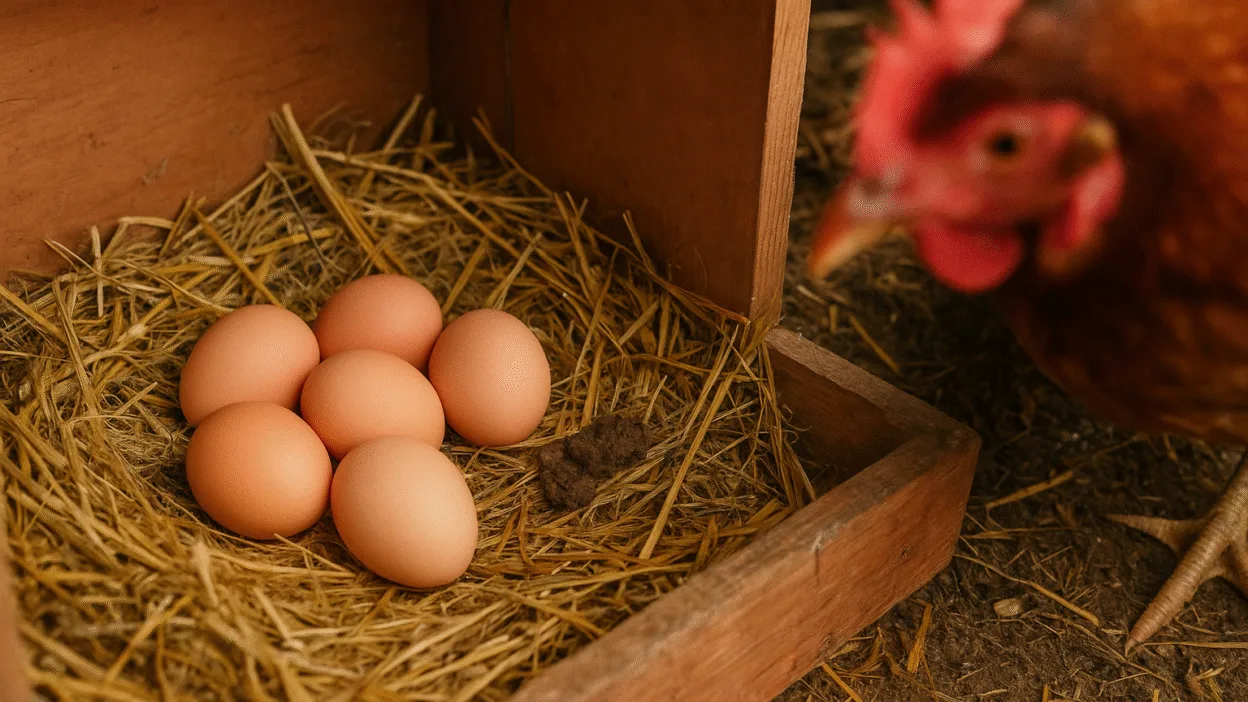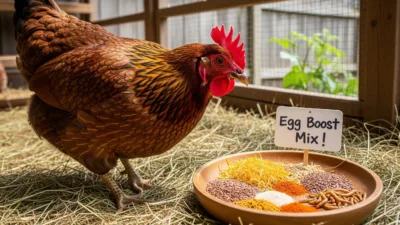Fresh eggs from your backyard hens are a joy , until you find droppings on them. Not only does it make collection unpleasant, but it can also increase the risk of bacteria like salmonella. By following a few simple coop management and egg handling tips, you can keep your eggs clean and safe right from the nest.
Why Eggs Get Dirty in the First Place
Before fixing the problem, it’s important to understand why it happens. Common reasons include:
- Dirty nesting boxes due to infrequent cleaning.
- Hens sleeping in nesting boxes instead of roosting at night.
- Too few nesting boxes, causing overcrowding.
- Muddy or wet conditions in the run.
1. Keep Nesting Boxes Clean
- Fresh bedding: Use straw, pine shavings, or hemp bedding and replace it weekly.
- Spot-clean daily: Remove droppings or damp bedding as soon as you see them.
- Use nesting box liners: These make cleaning quicker and easier.
2. Provide Enough Nesting Space
A general rule is one nesting box for every 3–4 hens. Too few boxes cause crowding, which leads to soiled eggs.
3. Discourage Sleeping in Nesting Boxes
Hens that sleep in nesting boxes overnight will leave droppings there.
- Provide comfortable roosts higher than nesting boxes.
- Block boxes at night if needed and reopen in the morning.
4. Collect Eggs Frequently
The longer eggs sit in the coop, the greater the chance of them getting dirty.
- Collect at least twice a day (morning and late afternoon).
- In winter, more frequent collection helps prevent freezing, too.
5. Maintain a Dry Coop Environment
Wet conditions lead to muddy feet and dirty eggs.
- Ensure good drainage in the run.
- Add dry ground cover like sand or gravel in muddy areas.
- Keep waterers away from nesting areas.
6. Train Hens to Use Nesting Boxes
Place fake eggs or golf balls in the boxes to encourage hens to lay there instead of the floor or run.
7. Gentle Cleaning for Slightly Dirty Eggs
Even with the best setup, occasional dirty eggs happen.
- Wipe gently with a dry cloth or brush for small spots.
- Avoid washing unless necessary, as it removes the egg’s protective bloom.
Final Thoughts
Keeping eggs clean starts with proper coop maintenance, the right nesting setup, and frequent egg collection. By preventing droppings in nesting boxes and maintaining a dry, organized environment, you’ll enjoy fresh, clean eggs without the extra scrubbing.



